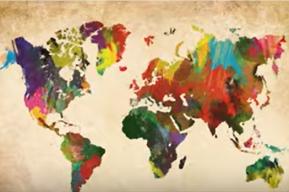Article
UNESCO Urges for the full Respect of the Right to Education and Cultural Rights in a Changing World

Empowering Teachers and Fostering Inclusive Education
Ms. Farida Shaheed, the Special Rapporteur on the Right to Education, presented a report on the pivotal role of educators, their working conditions, and the significant challenges they face in delivering quality education for all. The report addressed several pressing issues, including the shortage of qualified teachers, a major obstacle to upholding the right to education that leads to overcrowded classrooms and overburdened educators. Additionally, she highlighted the crucial role of robust teacher training, essential in preparing educators to provide adaptable, inclusive, and high-quality education.
In response to Ms. Shaheed's report, representatives from various Member States and Observers expressed their insights as they recognized the need for quality and inclusive education. They stressed the importance of governments’ targeted efforts to strengthen teachers' capacity and skills, particularly in the digital sector, and improving their working conditions. Teachers were acknowledged as key figures in creating a resilient and inclusive educational environment.
Speaking on behalf of UNESCO, Ms. Lily Gray emphasized the organization's collaborative efforts to address the challenges facing the teaching profession. She underscored the critical importance of empowering, recruiting, training, qualifying, motivating, and supporting teachers. UNESCO acknowledged that teachers’ work must extend beyond disseminating skills and knowledge as they act as producers of knowledge. Teachers should be enabled to make pedagogical decisions in the classroom, at school, and in policy environments in order to guide in understanding complex realities, and policy partners. She also shared about the UNESCO's forthcoming Global Report on Teachers, taking a human rights-based approach, will complement the insights provided by the Special Rapporteur.
Cultural Rights: A Vital Component of Sustainable Development
In a world where sustainable development and human rights intersect, the neglect of cultural development in sustainable development policies is a growing concern. Ms. Alexandra Xanthani, the Special Rapporteur on Cultural Rights, underscored the lack of emphasis on cultural rights in her report despite States' commitments to creating an environment conducive to their exercise, as outlined in the MONDIACULT Declaration. While acknowledging the substantial efforts made by development organizations to protect cultures within sustainable development processes, she emphasized the necessity for further strengthened efforts in this regard. She also highlighted the need for organizations to identify the extent to which their policies disrespect cultural rights, and to have human rights impact assessments that include cultural rights elements.
Member States and Observers echoed the Special Rapporteur's sentiments regarding the significance of incorporating cultural rights into the development process. Questions and concerns raised by various stakeholders covered the practical implementation of cultural rights indicators, the preservation of culture in conflict zones, and the inclusion of cultural rights in international summits. The dialogue underscored the growing consensus on the need to prioritize cultural rights and ensure their integration into the broader sustainable development agenda.
Ms. Estelle Zadra, on behalf of UNESCO, stated that the results of a global consultation on the implementation of the 1980 Recommendation on the Status of the Artist will be presented next November, to support countries in advancing the MONDIACULT Declaration. UNESCO also collaborated with OHCHR, ILO, UNHCR and WIPO to elaborate a training package on culture and human rights. In January 2024, through the expert consultations in the World Heritage Convention processes, UNESCO is aiming to seek improved recognition of the rights and values of indigenous peoples. While overseeing the MONDIACULT Roadmap, UNESCO’s next milestone will be the 2025 World Forum on Cultural Policies and its Global Report that features cultural rights.
The United Nations General Assembly dialogue fostered thought-provoking discussions concerning the right to education and cultural rights. It reaffirmed the critical role of educators in upholding the right to education and emphasized the need for comprehensive efforts to safeguard cultural rights within the context of sustainable development around the world.









